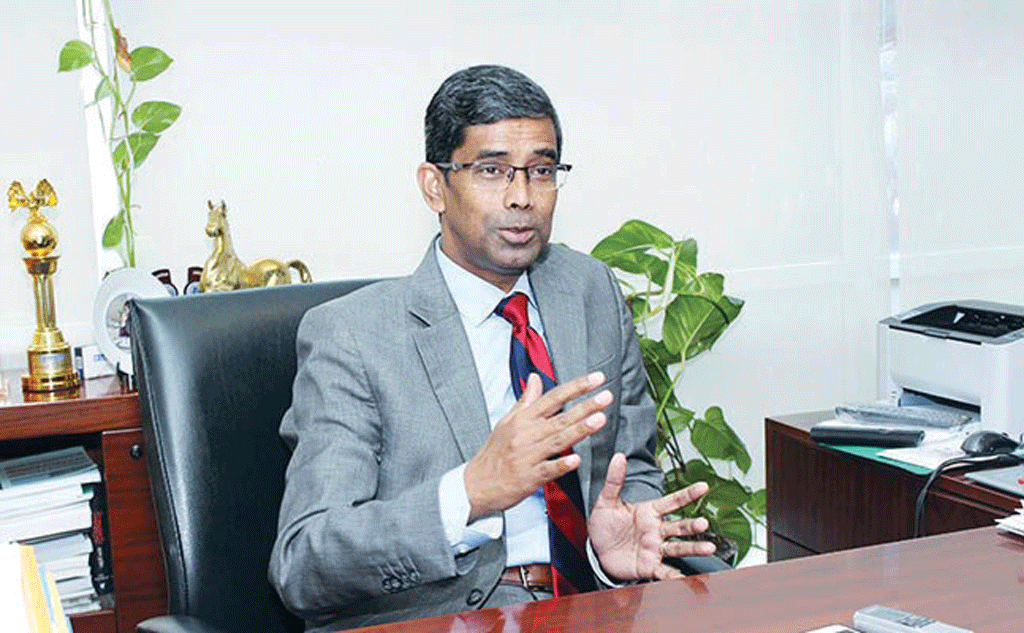‘Cybersecurity is a big challenge for Bangladesh’s banking sector

In an exclusive interview with the Dhaka Tribune's Mehedi Hasan, Bank Asia Ltd President and Managing Director Md Arfan Ali, talks about Bank Asia’s vision and the financial inclusion strategies, challenges, and possibilities for the country’s banking sector
With an MBA degree from the Institute of Business Administration (IBA) at Dhaka University, Arfan Ali has over 25 years of experience in the banking sector. He started his career at AB Bank as a probationary officer back in 1991, after which he joined Hanil Bank in 1996.
Arfan joined Bank Asia as an assistant vice-president in 1999, and served at Jahangirnagar University IBA as a part-time lecturer for 10 years.
Bank Asia recently celebrated its 19th anniversary. What notable achievements did the bank make during this period?
In the beginning, Bank Asia bought the liabilities and assets of the Bangladesh branches of two foreign banks—Muslim Commercial Bank and The Bank of Nova Scotia. This was the first takeover by a local bank in the history of Bangladesh. Bank Asia has also been playing an important role in the economic development of Bangladesh. The total value of our bank's assets amounts to Tk31,000 crore.
With the aim of maintaining a high standard in the country’s banking system, Bank Asia has refrained from doing anything that would ruin the reputation of the national banking sector. We have also introduced new services, digitized our services, and contributed to the automation of the sector. Customers can now avail banking services at home by using our mobile app. Our Islamic banking model has also been well-received by customers.
Currently Bank Asia has approximately two million customers which is a big achievement. We are also the first bank to start agent banking services in the banking sector which has been a huge success for us.
Bank Asia has also established digital booths at several ready-made garments (RMG) factories giving apparel workers access to all types of banking services. There are more than 8,000 accounts at these booths.
Can you tell us about Bank Asia’s role in spreading agent banking in Bangladesh?
Bangladesh Bank [the central bank of Bangladesh] was looking for a suitable partner to provide banking services to the rural population. We came forward. Some banks working on agent banking at that time were unsuccessful in proper implementation.
When the central bank gave the nod, we grabbed the opportunity—since it was our mission and vision to provide banking services to all citizens of the country—and started offering this service from 2014.
Back then it was difficult for banks to provide banking services in remote areas through new branches. Since then the business model has changed quite a bit, and now, banking services have reached remote areas via agent banking. Where we are unable to reach rural customers, our agents are doing the job on our behalf. Additionally, we are capable of handling real-time transactions with improved technology.
What cybersecurity challenges do you think Bangladesh’s banking sector is facing at the moment?
At present, cybersecurity is a big challenge for our country because using IT in the financial sector has become very widespread. All types of transactions are done using digital systems, thus it is getting much riskier.
We have to take measures to mitigate these risks, which is why investment in the IT sector has to be increased, both in terms of physical infrastructure and software upgrades. Bankers should be more aware and receive IT training.
What potential does the banking sector have in terms of investment?
Growth of our banking industry is not satisfactory compared to other countries. However, many new projects are being implemented, contributing to the growth of new businesses and the service sector, for which funding will be needed. Banks have the opportunity to finance these industries.
Bankers often complain they do not find entrepreneurs to lend money to. Entrepreneurs say the opposite. What is the reason behind this?
Both are partially true. Often good entrepreneurs do not receive loans due to lack of proper documentation.
Unfortunately, bankers tend to lend based on current economic trends. For instance, if an industry is doing well, we all approach its leading businessmen to offer loans, thus ignoring other promising industries suffering due to lack of funds.
Default loans in Bangladesh’s banking sector are increasing. What is your take on this?
Bank liquidity declines when default loans increase, while interest on loans goes up. Therefore, we need to be careful as the liquidity support of banks will not be available for long. Then it will be difficult to run banks. So everyone will have to take initiatives to help sustain the banking system.
Banks play an important role in the development of a country. If this sector becomes ill, the country’s development will be hampered. Like other countries, strict measures will have to be taken against defaulters.
Source: https://www.dhakatribune.com
Tags :
Previous Story
- Workers' wages rise in 6 grades
- 2019 Ram Heavy-Duty Pickup Muscles Its Way into...
- Samsung Suddenly 'Confirms' New Galaxy's Nasty Surprise
- Golam Dastagir Gazi new Bangladesh textiles & jute...
- Amidst legal battle, Gearbox CEO says he left...
- Stocks soar for 4th week as banks, GP...
- Migrant workers' jobs at stake
- Pharmas should adopt innovation through alliance with academia